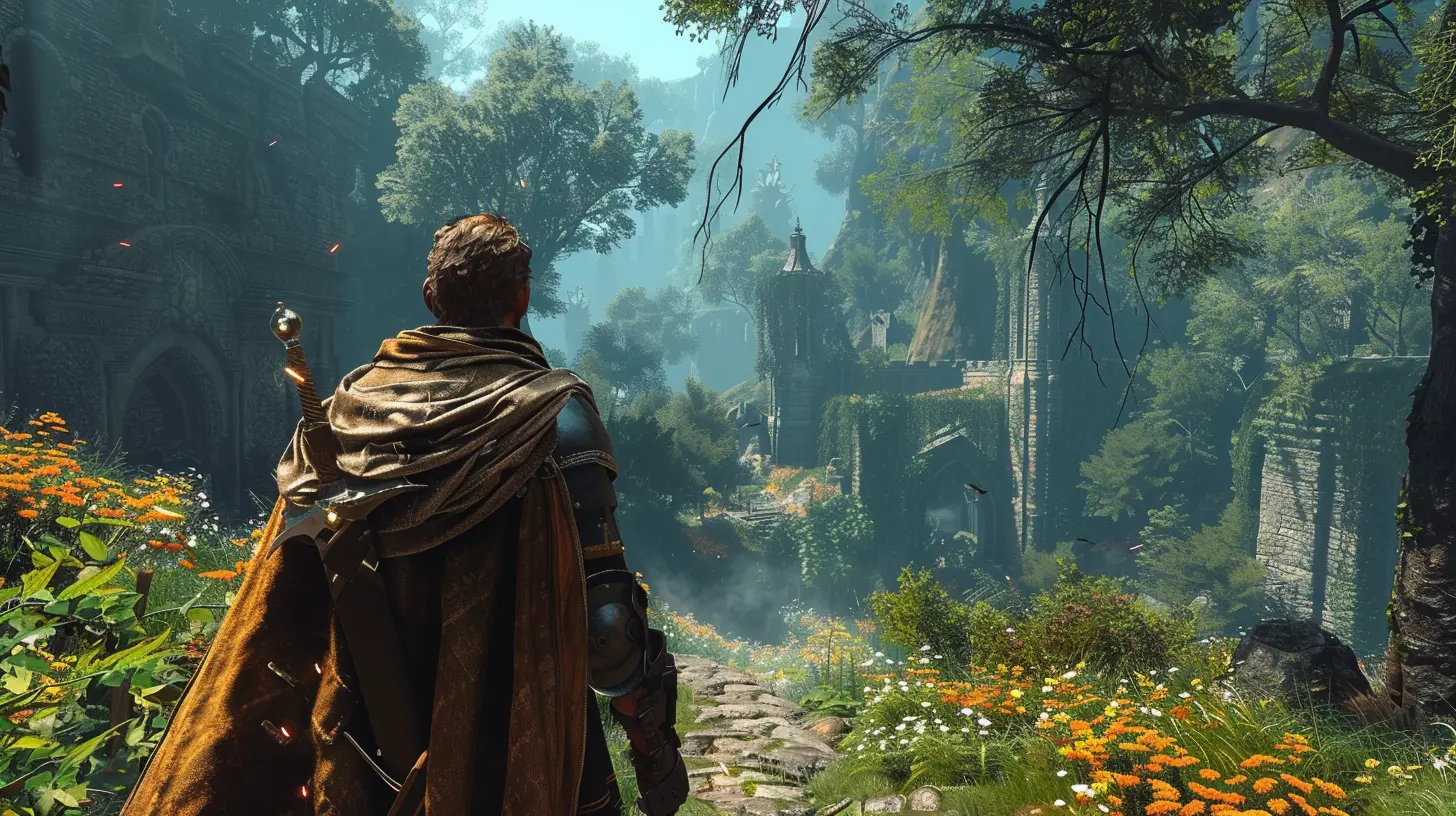Why Some Betas Feel Like Demos (And What That Means for You)
27 June 2025
Remember the last time you got hyped for a beta? You signed up, got the code, installed the game… and then, boom. It felt more like a slice of the final product than a test run. We’re talking polished visuals, handpicked missions, and hardly a bug in sight.
So, what gives? Why do some “betas” feel more like demos? And what does that mean for you, the player eagerly waiting for launch day?
Let’s break it down and get to the bottom of this confusing (and sometimes frustrating) trend.
🎮 What’s the Difference Between a Beta and a Demo?
Before we dive into the “why,” let’s make sure we’re on the same page.🔍 What is a Beta?
A beta is usually a pre-release version of a game made available to a limited audience. The goal? Testing. Developers want to stress test servers, identify bugs, and gather gameplay feedback. It’s not supposed to be perfect. In fact, it’s expected to be a little rough around the edges. You’re helping polish the game before it hits shelves.🧪 What is a Demo?
A demo, on the other hand, is a curated experience. Think of it like a movie trailer you can play. It’s designed to showcase the best parts of the game to get you excited. It’s polished. It’s user-friendly. It’s more marketing pitch than test drive.Now here’s where things get blurry...
🤔 Why Do Some Betas Feel Like Demos?
You fire up a “beta,” and it’s sleek, clean, and well-scripted. Where’s all the testing? Where are the bugs? It feels more like a finished product. That’s not by accident. Here’s why that happens:1. 🧱 Marketing in Disguise
Let’s face it—marketing plays a huge role here. Game studios spend years and millions of dollars creating these titles. They can’t afford a bad first impression. If a true beta is too buggy or confusing, players might bounce… and never return.So what do they do? They slap the word “beta” on what’s essentially a demo. It gives them a safety net. If you don’t like it, they can say, “Don’t worry, it’s just a beta!” But if you do like it? Early hype builds fast.
2. 💻 Limited Testing Windows
Actual testing requires time and commitment—from both players and devs. But most “betas” today only last a weekend. That’s not enough time to properly test anything meaningful. Instead, developers cherry-pick content that’s stable and representative, just to give you a taste.The goal becomes less about testing and more about gauging interest.
3. 🧮 Data Collection (Yes, Even in a Demo Disguise)
Even if it feels like a demo, these “betas” are still gathering data. Developers are monitoring player behavior, drop-off points, character usage, and more. So while it might not feel like you're helping refine the game, your time spent playing is valuable to the team.It’s kind of like being unknowingly cast in a focus group. You didn’t sign up to test game mechanics, but that doesn’t mean your interactions aren’t being reviewed.
4. 📦 Day-One Patch Era
Back in the day, if a game shipped broken, that was it. But now? Game patches are the norm. Developers can release something that’s “good enough,” then quietly roll out updates over time.This has changed how betas are handled. Instead of polishing everything pre-launch, studios use post-launch patches as a safety net. That means they can afford to release polished “betas” that are more about buzz than bugs.
🧠 What Does This Mean for Gamers?
So the big question—what does all this mean for you?Here’s the TL;DR: Betas aren’t always what they seem. And that can affect your expectations, your wallet, and your overall experience.
⚖️ Expectation Management is Key
If you jump into a beta thinking it's a rough, honest preview, you might be surprised when everything feels overly smooth and restricted. Managing your expectations is crucial. Don't assume what you see is what's representative of the full experience.Think of it like a shiny car parked in the lot. It looks great, the engine purrs, but you’re only allowed to test drive it around the block. You don’t know how it handles on the highway until you actually buy it.
🤑 Pre-Ordering Based on Betas? Be Careful
When betas feel like demos, it’s easy to get swept up and pre-order. But remember: the experience is handpicked. You might love those two missions, but the rest of the game could be a whole different story.Try to resist the urge to pre-order purely based on a smooth beta. Look for more info, wait for full reviews, or see how the game’s reception pans out a few days after launch.
🕵️♂️ Don’t Confuse Polish for Depth
Some beta-demo hybrids are so slick, you might think the whole game will be that flawless. But polish doesn’t equal depth. A limited playable area doesn’t show you the endgame, the real-time balance, or how repetitive things might get after 10 hours.If you can only access one map or one mode, be cautious. That slice might be the best part, leaving you disappointed later if the rest of the game doesn’t live up to it.
🛠️ Why Developers Still Use Real Betas
Before we get too cynical, it’s worth noting: real betas still exist.🧪 Games-as-a-Service Need Real Feedback
Think MMOs, battle royales, or any live-service title. These games need real-time balancing, stress testing, and community feedback. You might encounter bugs, crashes, or meta-breaking tactics—and that’s the point.For these games, having a real beta is essential for a stable launch and long-term success. Devs want honest reactions, not just flashy previews.
🧠 Smaller Studios Need Honest Testers
Indie developers especially rely on betas to help them polish the experience. They don't have the budget for huge QA teams, so community involvement is vital. If you're ever part of an indie beta, know that your feedback actually shapes the game.🧩 How to Tell if a Beta is Really a Demo
Okay, so how can you tell what you’re getting into? Here are a few flags:✅ Signs It’s a Demo Disguised as a Beta:
- Short play session (1–2 hours)- Limited modes, characters, or maps
- Extremely polished UI and presentation
- No visible feedback forms or bug reporting tools
- Ends just a week or two before official launch
✅ Signs It’s a True Beta:
- Bugs, glitches, and possible crashes- Real-time feedback requests from devs
- Includes stress testing (especially for online features)
- Email surveys or Discord feedback groups
- Typically months before launch
Knowing the difference helps you adjust your expectations—and avoid disappointment.
🕹️ The Psychological Trick of the “Beta” Label
Let’s be real: the word “beta” has a softer ring than “demo.” When you think “beta,” you expect an unfinished product. You’re forgiving. You feel like part of the development journey.On the flip side, “demo” implies finality. So if something sucks, you're less forgiving.
Game studios know this. Labeling something a “beta” softens criticism. It gives developers room to breathe and gives players the illusion of involvement—even if the game is locked and loaded behind the scenes.
It’s one-part marketing, one-part damage control. And it works.
🎯 What You Can Learn from Beta-Demo Hybrids
Here’s the upside: even if it's more demo than beta, playing it still gives you vital info. Look beyond the surface:- How does the game feel mechanically?
- Does it respect your time and attention?
- Can you see yourself playing for weeks—or does it already feel repetitive?
- What’s the community vibe like?
Use these insights to guide your purchase decisions. Don’t rely on the label—rely on your gut.
💡 Final Thoughts: Betas, Demos, and You
We’re in a weird time where the lines between marketing and development are blurry. Some betas are truly about testing, growing, and improving. Others? Well, they’re just flashy demos in a beta’s clothing.As a gamer, your best bet is to stay informed, stay skeptical, and always think critically about what you’re playing. Just because it’s called a beta doesn’t mean it’s still in the oven. Sometimes, it’s already piping hot and just waiting for you to take a bite.
And hey, if it tastes good—awesome. But don’t forget to check what’s cooking in the rest of the kitchen.
all images in this post were generated using AI tools
Category:
Beta TestingAuthor:

Whitman Adams
Discussion
rate this article
2 comments
Harvey Sullivan
This article does a great job highlighting the blurred lines between betas and demos. It’s a critical reminder that players should manage their expectations; not every beta offers a glimpse of the finished product. Transparency from developers is key for a better experience.
September 19, 2025 at 2:40 PM

Whitman Adams
Thank you for your insightful comment! I completely agree that managing expectations and developer transparency are crucial for understanding the beta experience.
Vance McMeekin
This article raises important points about beta testing transparency. It’s crucial for developers to clearly communicate their goals to players.
July 4, 2025 at 4:11 AM

Whitman Adams
Thank you for your insight! Clear communication during beta testing is indeed essential for fostering trust and collaboration between developers and players.


